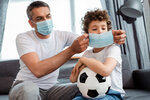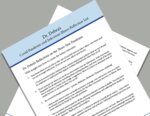



Summer is here (albeit in spring) and the end of the pandemic has been declared!
I would like to share some reflections on Covid-19. Two research studies, a book, and a concert experience (Emerald City Music debut on May 13 at Minnaert Center of Seven, a cello solo composed to honor the pandemic experience in New York City), have been inspirations.
Assessing pandemic policies and behaviors between states and their effect on death rates; https://www.thelancet.com/action/showPdf?pii=S0140-6736%2823%2900461-0
This was a population study that looked at Covid19 outcomes in each state based on pre-Covid factors. There were up to 4-fold differences in Covid19 death rates across states (adjusting for age and co-morbidities – things that are known to increase death risk with Covid, such as age, diabetes, and male gender). This kind of research is key to understanding the past and how to plan for future pandemics. What made a difference, what didn’t and how can we do a better job next time? It is not always true that what makes sense intuitively corresponds with the science.
Factors associated with higher death rates were: population of minorities (Black and Hispanic specifically), level of poverty, income inequality, percent of those without health insurance (a key measure of access to healthcare), those who voted for the Republican presidential candidate in 2020, and higher employment rate (associated with lower closure mandates).
Decreased death rates were associated with increased years of education, the mean level of personal trust* (see more below), healthcare system capacity (a second key measure of access to healthcare), vaccine mandates for state employees, and vaccine coverage of the population.
Surprisingly the study showed no association with death rates by public health spending or number of employees in public health nor did the political affiliation of the state’s governor affect death rates. Interestingly, the intensity of infection protection policies (e.g., physical distancing and mask mandates) was associated with lower infection rates but not deaths.
*I am fascinated to read (but not surprised based on how this pandemic played out) that Interpersonal Trust played an outsized role in outcomes. Early in the pandemic, I read The Psychology of Pandemics by Steven Taylor, Ph.D., a Canadian psychologist. It was published in 2019 and very accurately predicted the challenges the world would face with Covid19 a year later. He emphasized the importance of scientific sharing, public messaging, government intervention, and trust for effective pandemic response.
Where scientific uncertainty is great, public confidence is easily undermined. Many countries worldwide fought widespread rejection of vaccines and the willingness of so many to believe non-science as well as try unproven and potentially dangerous remedies.
Trust motivates people to protect others and reduces the fear of being misled or exploited. In the future, clear, transparent, and timely communication can help build public trust in a crisis.
Canadian Study of Hospitalizations in Canada Quantifies Benefit of Covid 19 Vaccine to Reduce Death, ICU Admissions – a summary published in Medscape – May 8, 2023
In a study of tens of thousands of Canadians, unvaccinated patients were found to be up to 15x more likely to die from Covid 19 than the unvaccinated. In the later waves of infection (when more people were vaccinated), the proportion of adults admitted to ICUs was significantly lower (8.7% vs. 21.8% early in the pandemic) though there was a greater number of infections with Covid19 than earlier which still posed significant demands on the healthcare system.
David Fisman, M.D.’s commentary (professor of epidemiology in Toronto) on this research was that Canadians could not understand in real-time (i.e., when it was happening) what was going on nor what they were paying for with this surveillance system research. This is verbatim what occurred in our country. There was much research going on during the pandemic, most of which was not shared with the public. This knowledge gap undermined trust.
Click here for a copy of this list in a printable list.
I am grateful to move on, watch the kids return to school and each other, make up for lost learning and connections, and for all of us to arrive at this pandemic-free life with each other at long last!
Debra L. Glasser, M.D., is a retired internal medicine physician who lives in Olympia. Got a question for her? Write drdebra@theJOLTnews.com
Comments
No comments on this item Please log in to comment by clicking here